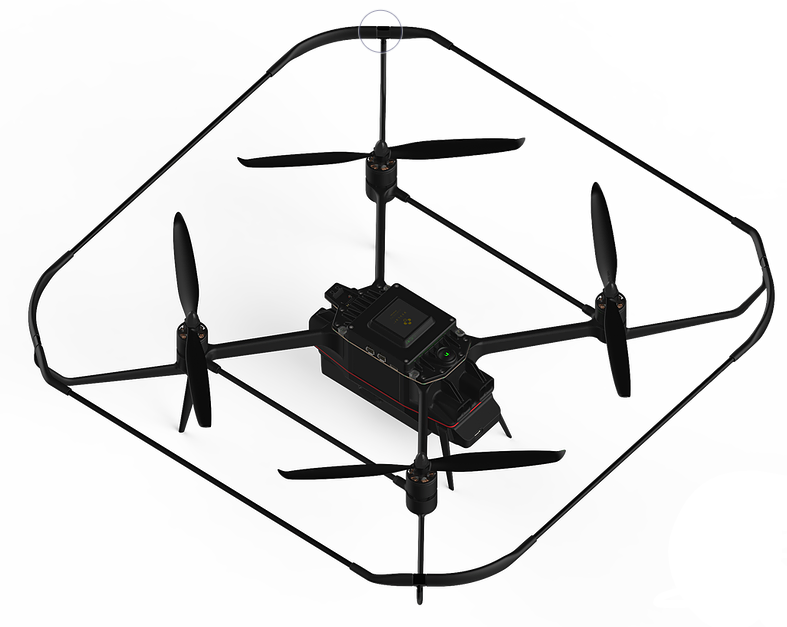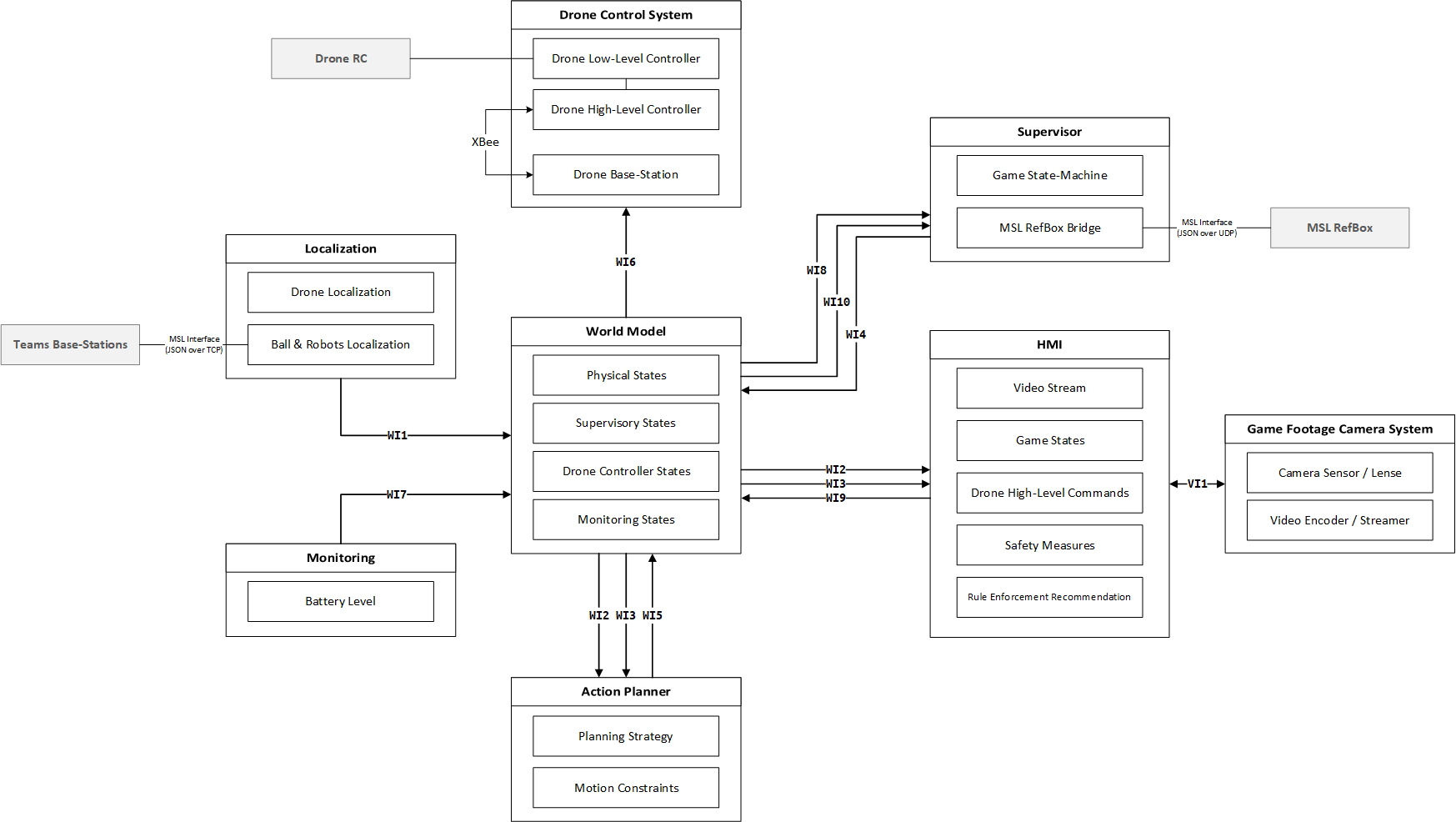Drone Referee - MSD 2018/9: Difference between revisions
Jump to navigation
Jump to search
| Line 26: | Line 26: | ||
===MSL 2D use case=== | ===MSL 2D use case=== | ||
===MSL 2D context diagrams=== | ===MSL/Ball-Following 2D context diagrams=== | ||
[[File:MSL-Context-Diagram.png]] | |||
===MSL 2D sub-systems=== | ===MSL 2D sub-systems=== | ||
Revision as of 10:52, 4 April 2019
Introduction
Architecture
In this part we introduce CAFCR and its role in building our architecture (RAS & MSL)
Introduction and overview
CAFCR
Referee aiding system
Referee aiding system (RAS)
RAS CAFCR
RAS use case
RAS context diagrams
MSL 2D
MSL 2D CAFCR
MSL 2D use case
MSL/Ball-Following 2D context diagrams
MSL 2D sub-systems
Drone
World model
Camera footage system and HMI
Supervisor
Action planner
Localization systems
MSL Gimbal
MSL Gimbal CAFCR
MSL Gimbal use case
MSL Gimbal context diagrams
Project management
Introduction
Project management plan
Communication management plan
Quality management plan
Test management plan
Risk analysis
Simulation
Introduction
Architecture constraints
System description
Interface (I/O) descriptions
Component descriptions
- 2-D
- Gimbal
Design choices
Technology
Implementation
Drone
Introduction
The drone is the main hardware subsystem of the RAS. This subsystem includes sensors, microcontroller, communication ports and mechanical components. The drone used in this project, is the last version of Avular curiosity drone provided by Avular company. The drone can be programmed by means of Matlab Simulink. All the other subsystems must eventually be implemented on the drone to achieve the final goal of game refereeing.

